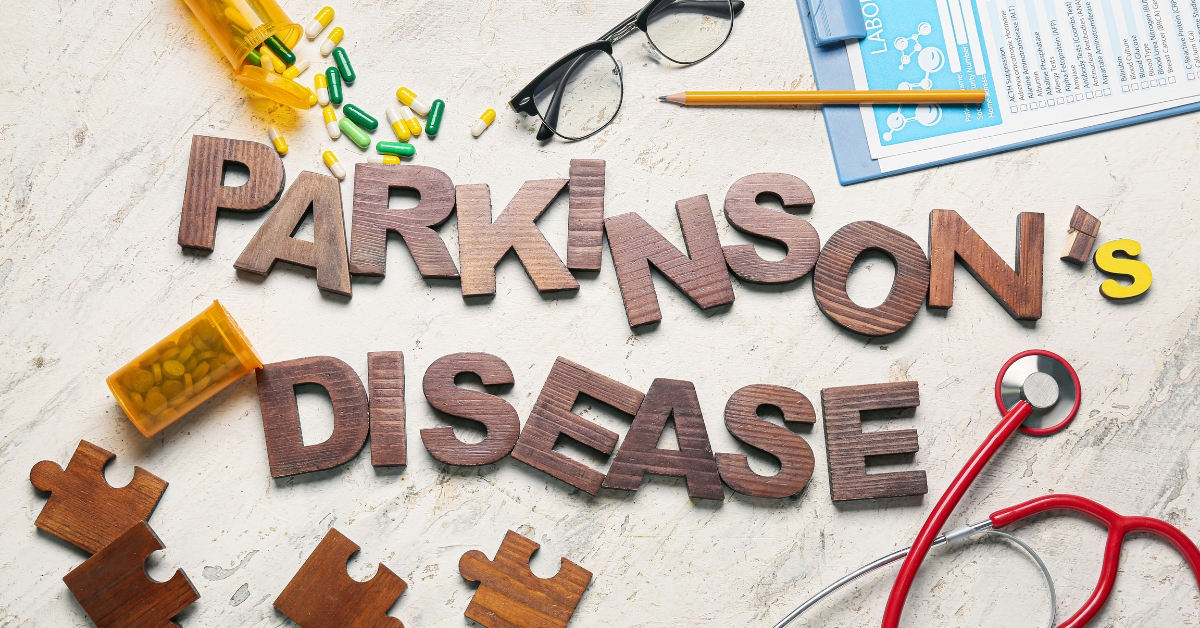Best Parkinson's Disease Treatment in India - ALIV
July 10 2024


Introduction to Best Parkinson's Disease Treatment in India
Neurodegenerative diseases can feel like a fading light. In India, around 580,000 individuals were estimated to be living with Parkinson's Disease as of 2016. Despite this significant number, there is a lack of deep understanding about the genetic and environmental risk factors that affect the Indian population specifically. The annual median direct cost of care for Parkinson's Disease is approximately INR 27,315, which tends to rise with the patient's age and as the disease progresses.
Read more: Source
Let's Understand Parkinson’s Disease
It is a progressive neurological disorder that can be managed with various Parkinson's disease treatments.
What is Parkinson's Disease?
Parkinson's disease is a progressive neurological disorder that deteriorates the nervous system and the bodily functions it regulates. Symptoms often start subtly, typically with a minor tremor in one hand. Though tremors are commonly related to the disease, it can also cause stiffness and slowing of movement.
Early signs include a reduction in facial expressions and arm stiffness while walking. Speech might become softer or slurred. As the disease progresses, these symptoms typically worsen. While there is no cure for Parkinson's, many medications can significantly relieve symptoms. In some cases, doctors might suggest surgery to target specific brain areas and improve symptom management.
Causes of Parkinson’s Disease
The disease involves the loss of brain neurons, especially those that produce dopamine, which leads to movement difficulties and other symptoms. The exact causes of Parkinson’s disease are not completely understood, but they likely involve a combination of genetic predispositions and environmental factors. Key genetic mutations are rare but occur in families with a history of Parkinson's. Exposure to certain environmental toxins may also marginally increase the risk. One of the significant findings in Parkinson’s patients is the presence of Lewy bodies—clusters of substances within brain cells, mainly composed of a protein called alpha-synuclein.
This protein, which accumulates in a manner that cells cannot dispose of, is crucial in ongoing research, especially since its presence in spinal fluid is linked to Parkinson's development.
Risk Factors of Parkinson’s Disease
- Age: Parkinson’s usually appears in middle to late adulthood, with risks increasing with age. Most diagnoses occur after the age of 60. For younger individuals, genetic counselling can provide essential guidance for family planning and managing life’s various aspects, from work to social interactions.
- Heredity: A family history of Parkinson’s increases the likelihood of developing the disease, although the overall risk is still low unless several family members are affected.
- Gender: Men are diagnosed with Parkinson’s more often than women.
- Environmental Exposure: Frequent exposure to certain herbicides and pesticides may slightly elevate the risk of developing Parkinson’s disease.
Understanding these aspects helps in managing and planning for life with Parkinson’s disease, focusing on maintaining quality of life and functional independence as much as possible.
Different Types of Parkinson's Disease Treatments Available in India
While Parkinson’s disease remains incurable, there are various treatments available to alleviate many of its symptoms.
1. Medications for Parkinson’s Disease:
Medications for Parkinson's disease aim to manage symptoms by adjusting brain chemistry, primarily enhancing dopamine levels. The mainstay of treatment, Levodopa combined with Carbidopa, boosts brain dopamine efficiently while reducing side effects.
Additional treatments include dopamine agonists, which mimic dopamine effects, and enzyme inhibitors like MAO-B and COMT inhibitors, which help maintain dopamine levels.
Drugs such as amantadine and anticholinergics are also used to control involuntary movements and manage tremors and rigidity.
2. Stem Cell Therapies:
Stem cell therapies offer groundbreaking potential in treating Parkinson's disease by attempting to restore damaged neurons and promote neural regeneration. This innovative approach focuses on improving symptoms and possibly slowing disease progression by integrating new, healthy cells into the brain, thereby rejuvenating damaged neurological pathways.
3. Deep Brain Stimulation (DBS):
Deep brain stimulation is an advanced treatment reserved for patients who do not respond adequately to medications. It involves surgically implanting electrodes in targeted areas of the brain and connecting them to a generator placed in the chest. This device emits electrical impulses that stimulate the brain, helping to control movement and significantly reduce motor symptoms such as tremors and stiffness.
4. Additional Therapies:
Supportive therapies like physical, occupational, and speech therapies are vital in managing Parkinson’s disease, aiding with mobility and cognitive functions. Lifestyle interventions, including a nutritious diet, regular physical activity, massage therapy, and mindfulness practices like yoga and tai chi, also play a crucial role. These holistic approaches help enhance muscle strength, flexibility, and overall mental and physical well-being, contributing to improved quality of life.
The Most Effective Parkinson's Disease Treatment in India
ALIV’s Autologous Cell Therapies (ACT) are at the forefront of advancing treatment for neurological conditions such as Parkinson's disease. By aiding neural regeneration and protecting nerve cells, ACT offers a promising solution for not only preserving but potentially improving cognitive and motor functions.
Key benefits of ACT for Parkinson's disease include:
- Delay in Disease Progression: Slowing the advancement of Parkinson's, allowing for prolonged maintenance of motor and cognitive skills.
- Enhanced Neurological Function: Improvement in overall brain function, leading to better quality of life.
- Improved Sensory and Motor Functions: Enhanced control and coordination, which help in daily activities and reduce the physical limitations imposed by Parkinson's.
- Boosted Cognizance and Speech: Sharper mental processing and clearer speech, aiding in communication and personal expression.
ALIV’s ACT represents hope for individuals with Parkinson's disease, aiming to restore not just function but also the quality of daily experiences.
Why ALIV is the best choice for Parkinson’s Disease Treatment in India
ALIV is recognized as the leading provider of Autologous Cell Therapy (ACT) for Parkinson's disease, with a founding team of medical experts dedicated to the highest standards of care.
Our approach is deeply personalized, tailoring each treatment to the individual's needs, a method that has garnered extensive praise from our clients. By combining top-quality ingredients with cutting-edge therapies, ALIV meets international standards and champions a forward-thinking approach to wellness.
Our commitment to transparency fosters strong trust among our clients, as we consistently share clear information about our treatments and their results. This total commitment to excellence and client satisfaction positions ALIV at the forefront of pioneering neurological treatments.
Conclusion:
At ALIV, we are redefining the way Parkinson’s disease treatments are approached in India. Our innovative use of Autologous Cell Therapies (ACT) offers a new dimension to Parkinson therapy, aiming to enhance neurological function and slow disease progression. While there is currently no Parkinson cure found, our therapies are focused on improving quality of life with every session. As a trusted center for new Parkinson’s treatment, we address symptoms like tremors by targeting the root cause. With a commitment to personalized care and science, ALIV stands at the forefront of transformative therapies for Parkinson’s disease.